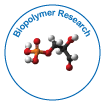Notre groupe organise plus de 3 000 séries de conférences Événements chaque année aux États-Unis, en Europe et en Europe. Asie avec le soutien de 1 000 autres Sociétés scientifiques et publie plus de 700 Open Access Revues qui contiennent plus de 50 000 personnalités éminentes, des scientifiques réputés en tant que membres du comité de rédaction.
Les revues en libre accès gagnent plus de lecteurs et de citations
700 revues et 15 000 000 de lecteurs Chaque revue attire plus de 25 000 lecteurs
Indexé dans
- Publons
Liens utiles
Revues en libre accès
Partager cette page
Abstrait
Production and Recycling of Organic Matter in Marine Biofilms Formed on Old and New Plastics
Sarah Collins
New plastics, such as surgical masks, nitrile gloves, and compostable plastics, have been produced in response to the recent pandemic and in accordance with international regulations. These new plastics, along with other common plastics, have significantly increased their input into the marine environment. Biofilm accretion was studied in the laboratory because floating plastic provides a suitable surface for the settlement of microorganisms. Under natural and artificial conditions, some of which resembled anthropogenic-affected states (eutrophication) and others of environmental variability (darkness and oligotrophy), the biofilm’s organic matter production and recycling characteristics were evaluated. Due to their structure and composition, the various plastics hosted distinct biofilms in natural conditions. On compostable plastic and surgical mask, biofilm was found to be thicker, with organic carbon maxima of 4.3 0.8 g cm2 and 35.0 4.7 g cm2, respectively. Compared to polyethylene terephthalate, polystyrene, and nitrile, compostable plastic contained more carbohydrates (on average, 8.0 0.8 g cm2) than the other materials.
Revues par sujet
- Agriculture et Aquaculture
- Biochimie
- Chimie
- Food & Nutrition
- Génétique et biologie moléculaire
- Géologie et sciences de la Terre
- Immunologie et microbiologie
- Ingénierie
- La science des matériaux
- Le physique
- Science générale
- Sciences cliniques
- Sciences environnementales
- Sciences médicales
- Sciences pharmaceutiques
- Sciences sociales et politiques
- Sciences vétérinaires
- Soins infirmiers et soins de santé
Revues cliniques et médicales
- Allaitement
- Anesthésiologie
- Biologie moléculaire
- Cardiologie
- Chirurgie
- Dentisterie
- Dermatologie
- Diabète et endocrinologie
- Gastro-entérologie
- Immunologie
- La génétique
- Maladies infectieuses
- Médecine
- Microbiologie
- Neurologie
- Oncologie
- Ophtalmologie
- Pédiatrie
- Recherche clinique
- Soins de santé
- Toxicologie

 English
English  Spanish
Spanish  Chinese
Chinese  Russian
Russian  German
German  Japanese
Japanese  Portuguese
Portuguese  Hindi
Hindi